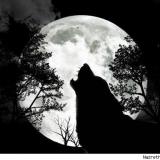For some Christians, apparently “God”'s pronouns are now They, Them, and Theirs.
“God Loves You As They Made You,” says the signboard in front of one neighborhood church that I drove past recently.
(Of course, eagerness to embrace the latest cultural trends has long been a strong signifier of the conceptual hollowness of so much contemporary American religion—pagan as well as Christian. Somehow, I can't help but suspect that God/They isn't going to age well.)
Divine gender has, of course, long been an issue for those poor impoverished souls who worship only one god. (Let those of us blessed with more feel no sense of smugness here, though: the question of divine “gender” is as active a theological category for thinking polytheists as it is for the thoughtful monotheist.)
In some ways, God/They could be construed as faithful to certain streams of Biblical tradition. The most common by-name for Yahwéh in the Hebrew Bible is Elohím, an undeniably plural noun (it's the anomalous plural of eloáh) usually (although not always) paired with a singular verb. The mental disconnect between the two—similar to the feeling that you get when someone says “a scissors”—is nicely paralleled by the (let's just admit it, stylistically inelegant) singular “they.”
I do wonder how God/They Christians deal with their traditional liturgical and scriptural texts. Is “God” a “They” there, too? How about Jesus? Is he also a they?
Still, it's hard to deny that God/They can't help but smack of polytheism which, while it warms the cockles of my pagan heart, must surely set the teeth of an awful lot of conservative One-God folk on edge.
-
 I received an update from drivethrurpg about a supplement for the Runequest about a new book called "The Six Paths" about the six
I received an update from drivethrurpg about a supplement for the Runequest about a new book called "The Six Paths" about the six -
 Mr. Posch, Yeah, hard pass on one scissor or one pant leg. Good point. We know that Christian conservatives get triggered by the
Mr. Posch, Yeah, hard pass on one scissor or one pant leg. Good point. We know that Christian conservatives get triggered by the


















